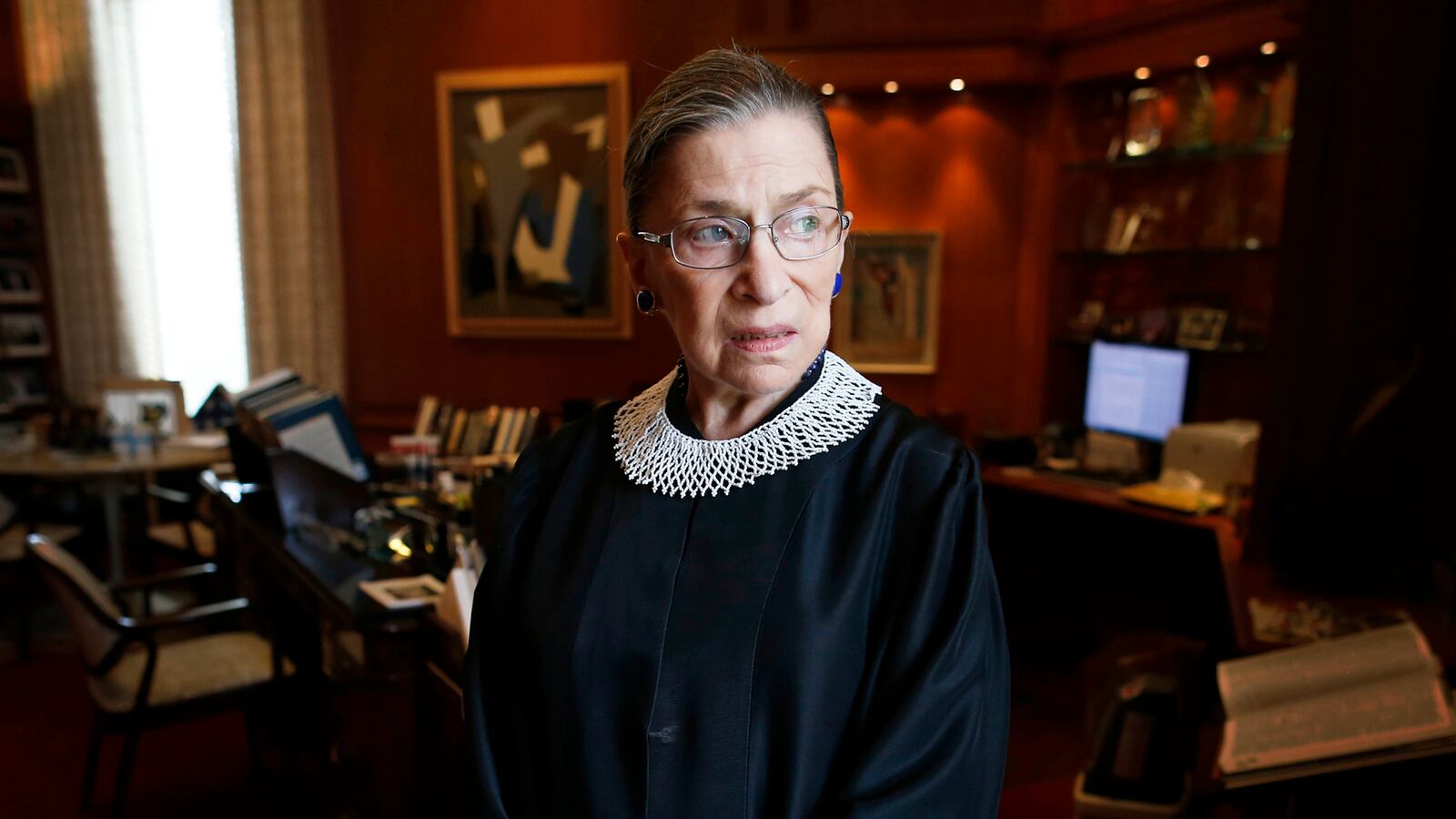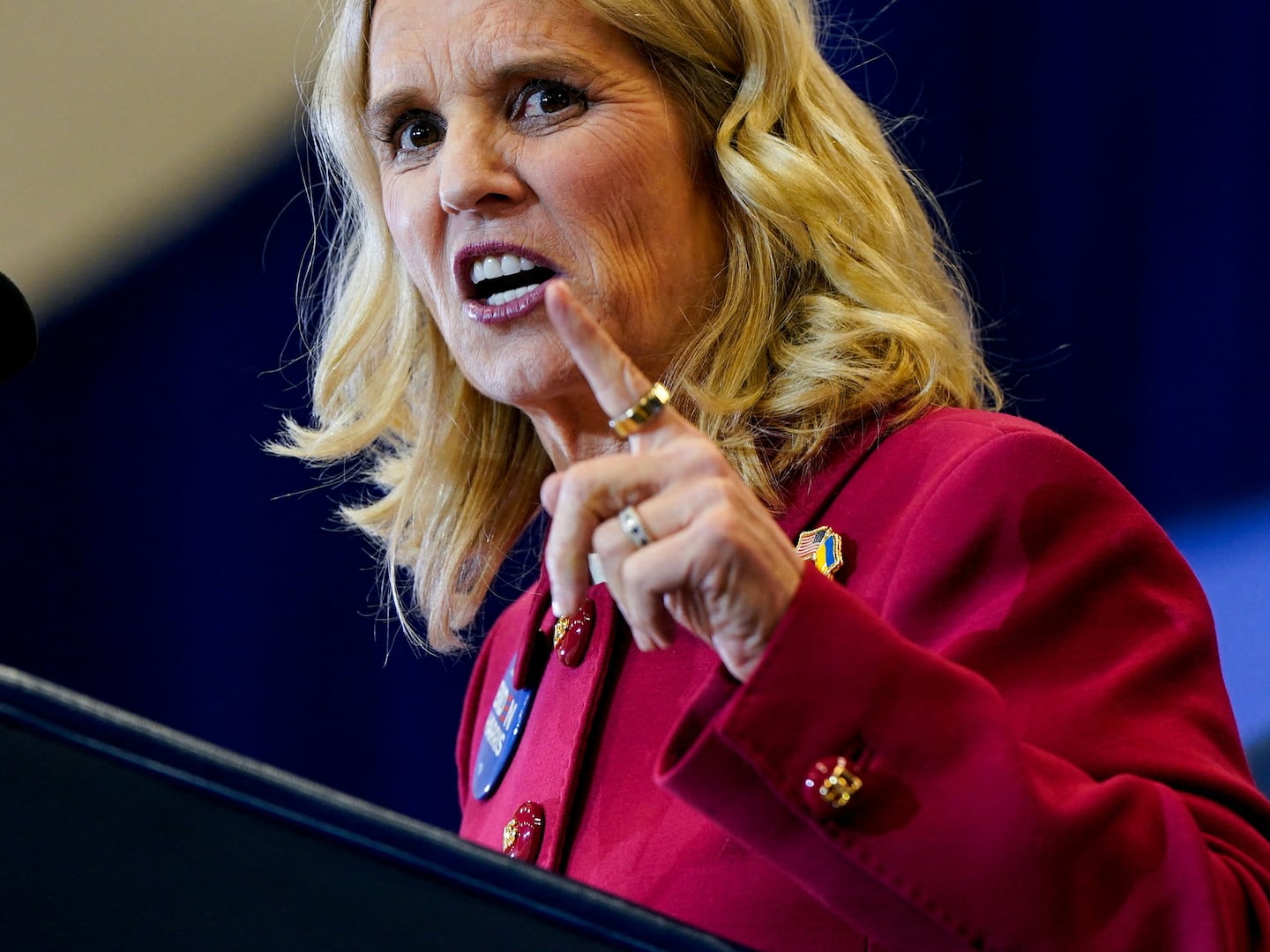In an unusually blunt and provocative interview this week, Supreme Court Justice Ruth Bader Ginsburg admitted that she was wrong to join a 2009 voting-rights opinion that paved the way for last term’s major ruling invalidating a key provision of the Voting Rights Act. In that same interview, Ginsburg rejected calls for her to retire soon so that President Obama—rather than a potential Republican president after 2016—can pick her replacement. Unfortunately, Ginsburg’s refusal to retire may turn out to be just like her 2009 vote: a costly mistake.

Both of Ginsburg’s decisions reflect a similar misplaced optimism. In the 2009 voting-rights case, Ginsburg agreed to go along with Chief Justice Roberts and the court’s other conservative justices in crafting an exception to the Voting Rights Act’s requirement that certain jurisdictions with a history of racial discrimination gain Justice Department preapproval before making any changes to their voting systems. Roberts’s opinion in that case went out of its way to point out what the chief justice saw as the constitutional flaws in the Voting Rights Act’s preapproval requirement, even as the court declined to invalidate the requirement altogether. Ginsburg joined the opinion, perhaps in the hope that Congress would revise the law, which Roberts’s opinion warned had to happen soon—or else. Yet Congress didn’t act—and the “or else” came this June, when the conservative wing of the court voted to invalidate the preapproval formula.
Is optimism once again leading Ginsburg astray? “There will be a president after this one, and I’m hopeful that president will be a fine president,” she said, claiming that the identity of the president wouldn’t influence her retirement decision. That’s a bold approach for an 80-year-old justice who’s twice battled cancer, including, most recently, pancreatic cancer, one of the deadliest. (Ninety-five percent of people diagnosed with that cancer die within five years.) Personally, I hope Ginsburg lives to 120 and continues to be just as intellectually sharp as she was this past term, when her performance showed absolutely no signs of abatement. Yet no one should be fooled into thinking a President Rubio or President Paul wouldn’t appoint someone to her seat far less likely to support Ginsburg’s values and judicial victories.
Of course, it’s perfectly understandable for Ginsburg to want to stay on the court and keep fighting. Since the retirement of Justice Paul Stevens two years ago, she’s become the leader of the liberal wing of the court. One can only imagine that the other liberal justices look up to her with admiration, especially the two women, Sonia Sotomayor and Elena Kagan, whose careers were undoubtedly helped by Ginsburg’s groundbreaking work as a women’s-rights lawyer. And two of the Court’s recent retirees, Stevens and Sandra Day O’Connor, both may have at least a bit of regret. Both in good health, they continue to speak about constitutional issues, yet without the influence they previously had on the bench.
Yet this is a time for Ginsburg to be concerned about her legacy. The person who appoints her replacement will shape the court, locking in a conservative or liberal vote for up to 30 or more years. The court today, meanwhile, is notoriously divided along ideological lines. Important decisions—from gay rights and women’s rights to federalism and religious expression—continue to come down to close, 5-4 votes. If a Republican president replaces Ginsburg, conservatives will have six votes on the Court. The swing justice will no longer be Anthony Kennedy, who sometimes sides with the liberals, as he did in the gay-marriage cases this June. His vote won’t even matter. The new swing vote might just be the conservative chief justice himself. Is he the one Ginsburg wants to cast the deciding vote in important constitutional controversies?
In her interview, Ginsburg said the Roberts Court is “one of the most activist courts in history.” Just imagine if her bet on the next president is wrong.






